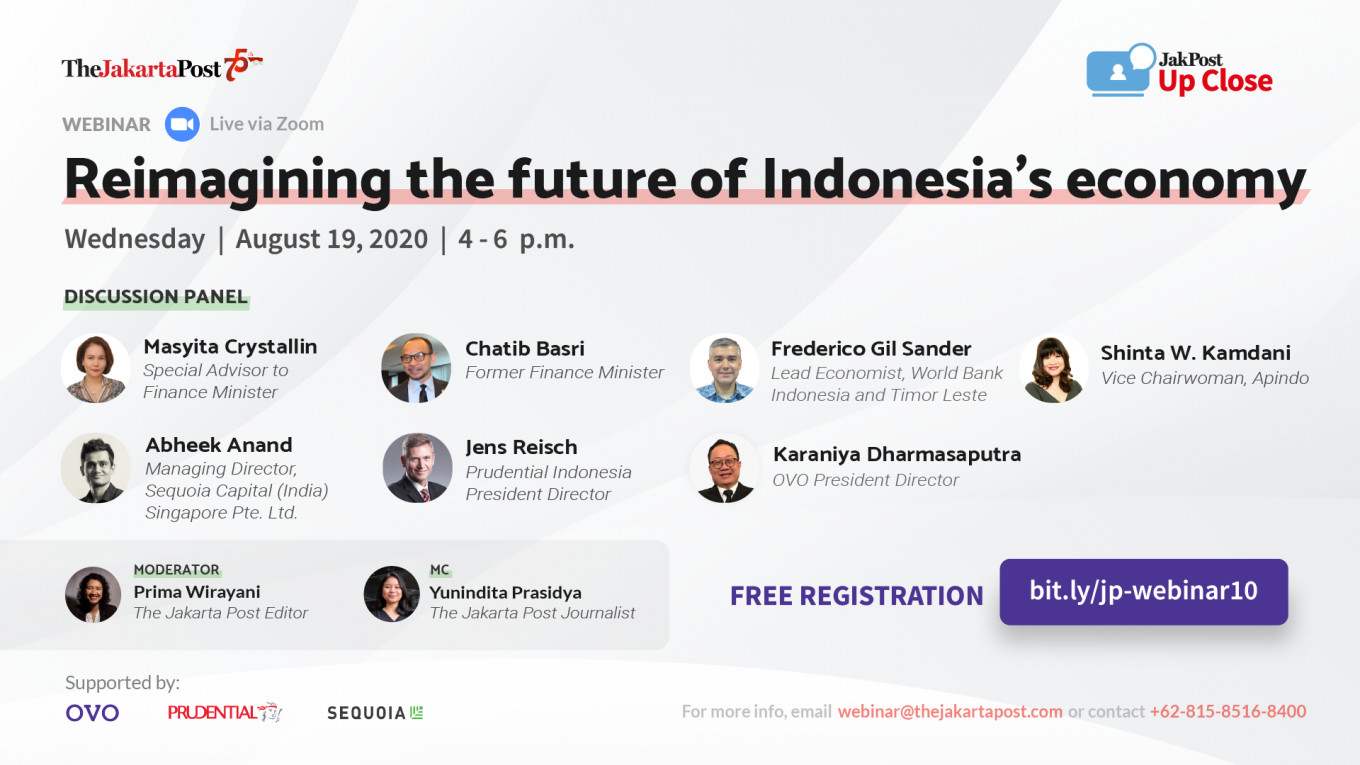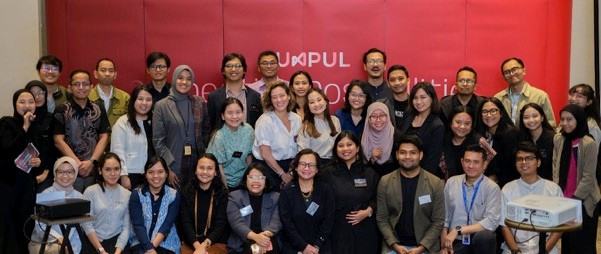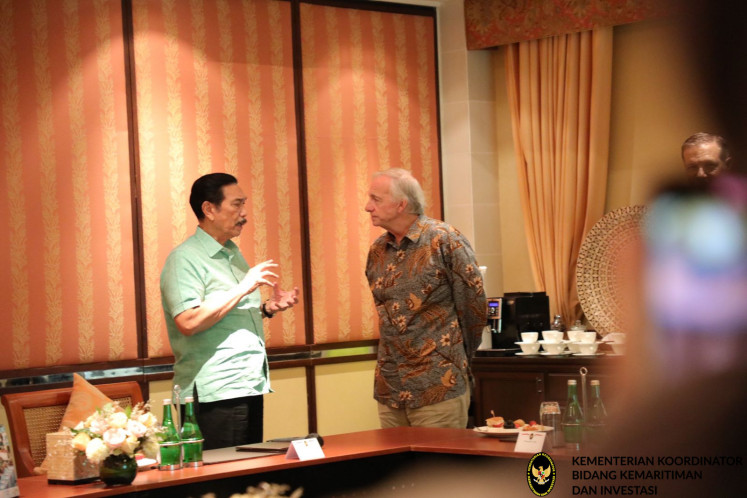Reimagining the future of Indonesia’s economy
Karaniya Dharmasaputra will share his insight into digital payments, a new growth engine for Indonesia and for the future, and OVO’s experience in digital payments during the pandemic.
Change text size
Gift Premium Articles
to Anyone

I
ndonesia’s economy is on track for a contraction this year as the coronavirus crisis has hit the global economy more severely than previously expected, according to estimates from the International Monetary Fund (IMF) and World Bank.
The government expects that 5.5 million of the country’s workforce, dominated by those working in the informal sector, will lose their jobs this year following the slowdown in economic activity. The COVID-19 pandemic has disrupted businesses and factories as people are forced to stay at home to contain the coronavirus spread.
The government has rolled out the national economic recovery program, which is included in the Rp 695.2 trillion of the state budget earmarked for the COVID-19 response to strengthen the healthcare system and soften the pandemic’s blow on the nation’s economy.
Businesses, on the other hand, have introduced health protocols in adapting to new ways of doing business during the pandemic, including the large-scale adoption of digital measures to minimize physical contact.
The Jakarta Post webinar JakPost Up Close on the future of Indonesia’s economy
The Jakarta Post webinar series, held to coincide with the celebration of Indonesia’s 75th year of independence, will discuss the future of Indonesia’s economy. It will feature authoritative speakers representing various stakeholders to present diverse points of view regarding the economy for a constructive public discourse.
The Post aims to be a source of information for Indonesians and the broader public around the world about the future of Indonesia’s economy as it faces a hard hit from the pandemic in pursuit of the nation’s 2045 vision.
Titled “Reimagining the future of Indonesia’s economy”, the webinar is to highlight issues like:
- The pandemic’s impact on Indonesia’s economy through the lenses of the public and private sector as well as academics and NGOs
- The state budget as a means to contain COVID-19 to strengthen Indonesia’s healthcare system and economy
- What Indonesia’s economy will look like in the future
- The roles of the public and private sector in reshaping Indonesia’s economy during and post-pandemic
- The relevance of technology and human capital development for Indonesia’s economic future
The webinar will be held in English via Zoom from 4 p.m. to 6 p.m. on Wednesday, Aug. 19, 2020 and will feature:
1. Masyita Crystallin, special advisor to the finance minister
2. Chatib Basri, former Indonesian finance minister
3. Frederico Gil Sander, lead economist, World Bank Indonesia and Timor Leste
4. Shinta W. Kamdani, Indonesian Employers Association (Apindo) vice chairwoman
5. Abheek Anand, Sequoia Capital (India) Singapore Pte. Ltd. managing director
6. Jens Reisch, Prudential Indonesia president director
7. Karaniya Dharmasaputra, OVO president director
As former finance minister, Chatib Basri must be well familiar with state budget issues and macroeconomics. He will talk about: disbursement of state funds for COVID-19 containment, cash transfers to boost purchasing power and speed up economic recovery as well as the critical elements the government should focus on to accelerate economic recovery.
On behalf of the finance ministry, Masyita Crystallin will touch on several topics, such as the state budget roadmap for economic recovery and beyond; top spending and revenue priorities; and the Finance Ministry’s tax reform agenda in light of weak business activities and purchasing power.
Shinta W. Kamdani of Apindo will share her view on the impact of government stimulus, especially the national economic recovery (PEN) program, on businesses. She will also discuss Indonesia’s competitiveness issues, especially in the labor market, as well as automation in domestic industries.
Meanwhile, Abheek Anand will discuss the role technology and the digital economy will play in shaping Indonesia’s future and growth areas he sees in the country.
Jens Reisch will give his views about how the pandemic has shifted insurance companies’ focus to cater better to people with middle to low income.
Karaniya Dharmasaputra will share his insight into digital payments, a new growth engine for Indonesia and for the future, and OVO’s experience in digital payments during the pandemic.
The webinar is aimed at facilitating constructive discourse for the general public, researchers, schools and universities, university students, private sector employees and executives, public sector staff and high-rank officials and entrepreneurs as well as those interested in seeking information on the latest developments of Indonesia’s economy and the country’s future economic prospects.
Free registration: https://bit.ly/jp-webinar10









